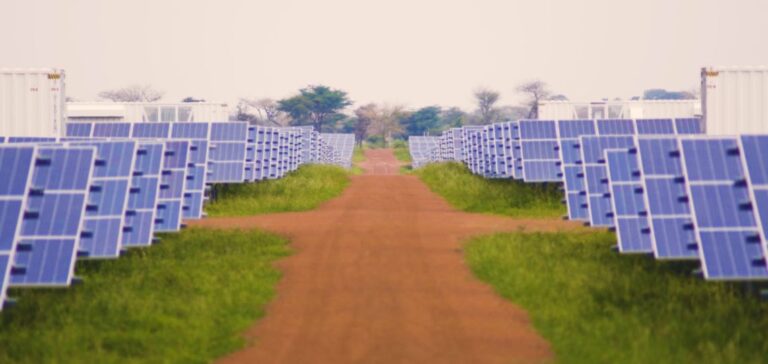Investment in renewables in Africa is at an “alarming” level despite the
huge potential of the continent, and are trailing at an 11-year low in 2021, according to a BloombergNEF (BNEF) report released Wednesday during COP27.
“Only $2.6 billion in capital was deployed for wind, solar, geothermal and other renewable energy projects in 2021, the lowest in 11 years,” said the report, released on the occasion of the UN climate conference in Sharm el-Sheikh, promoted as an “African COP” by the Egyptian presidency.
Investment in renewables worldwide climbed 9% year-on-year to its highest level ever last year.
Meanwhile, they have fallen by 35% in Africa, which accounts for only 0.6% of the $434 billion invested in renewables worldwide.
The continent, whose electricity production still relies heavily on polluting and costly fossil fuels, is falling behind “despite Africa’s exceptional natural resources, rapidly growing demand for electricity and an improving policy framework,” notes the consultancy BNEF.
Africa has an obvious potential in solar energy but only has 1.3% of the world’s solar energy capacity.
The report also highlights the high concentration of investments in a few countries: South Africa, Egypt, Kenya and Morocco, which since 2010 have accounted for nearly three-quarters of the total.
“Investment in clean energy in Africa is at an alarmingly low level,” lamented Michael Bloomberg, UN Special Envoy for Climate Action.
“Changing this requires new levels of collaboration to identify viable clean energy projects and bring them more private financing and public support – to turn Africa’s potential as a global clean energy leader into reality,” added the former New York City mayor.
The authors identified “barriers” that limit the deployment of these energies in Africa, such as the lack of knowledge of the opportunities in the sector on the part of national investors or poor planning to promote the expansion of electricity networks.
The report suggests looking to countries that have successfully addressed these barriers, highlighting, for example, the successful bidding process in Brazil or the mobilization of Mexico’s national development bank.






















